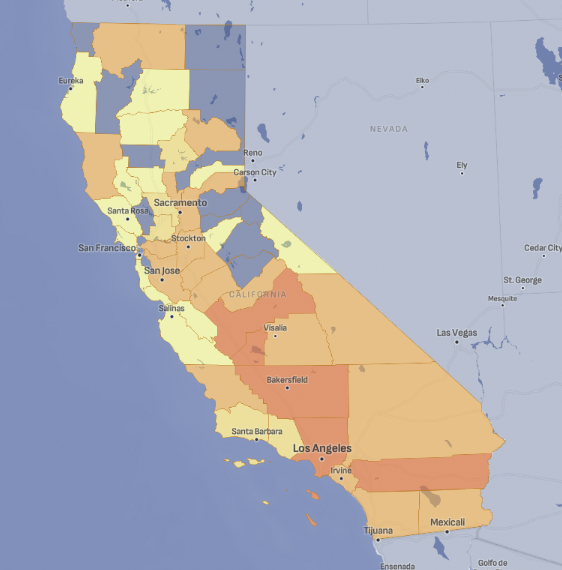The Filtration for Respiratory Exposure to wildfire Smoke from Swamp Cooler Air (FRESSCA) study aimed to reduce wildfire smoke exposures and health risks among agricultural workers and low-income families by designing and field testing an affordable, effective filtration system for swamp coolers.
Wildfires continue to grow in number and severity in the Western U.S. In California's San Joaquin Valley, wildfire smoke often gets trapped in the region where particulate pollution is already high, leading to high concentrations of particulate matter for many weeks. This smoke disproportionately impacts agricultural workers who must spend long periods of time working outdoors.
In the San Joaquin Valley, many low-income families and agricultural worker homes have evaporative or "swamp" coolers, which are often in use during wildfire season and high heat events. Families report that their indoor air becomes unbearably smoky, exposing these workers to dangerous air both at work and at home. There is no existing filtration for swamp coolers.
Learn more about the impact this project has had here.
FRESSCA Mujeres

The FRESSCA Mujeres project analyzed participant urine for chemicals that indicate exposure to air pollution. Samples were analyzed for metabolites of polycyclic aromatic hydrocarbons (PAHs), volatile organic compounds (VOCs), and heavy metals, as well as biomarkers of potential breast cancer risk (e.g. oxidative stress and inflammation). Air monitoring of the air pollutants, including PM2.5 was also done to complement and help interpret the biomonitoring results. The project evaluated how well residential air filtration reduces overall exposures to these pollutants, under normal conditions and during a wildfire event, in homes that used evaporative or swamp coolers.
As part of the FRESSCA Mujeres project, seven farmworker leaders living in the San Joaquin Valley were recruited with the help of CCEJN to participate in a digital storytelling workshop led by StoryCenter.
These videos are based on their personal lived experiences with air pollution and wildfire smoke, using air purifiers and swamp cooler filters to improve indoor air, and other environmental health issues in their communities.
Learn more about the stories here. The FRESSCA Mujeres project was funded by the California Breast Cancer Research Program Agreement B28TP5832-S.
Project Findings
The FRESSCA team found that adding filters to swamp coolers, along with using indoor air cleaners, helped improve indoor air quality by reducing particulate pollution indoors. When wildfire smoke or poor air quality is present outside, participants were advised to attach filters or cover their swamp cooler with a MERV 13 cloth and to only use these filters while air quality is poor, since dust or damage to the filter could make the cooler less effective. Participants were also advised to use indoor air cleaners daily. The study also found Valley fever spores on filters, which are being further investigated.
Although costly, the project team suggests a longer-term and more permanent solution would involve replacing homes with evaporative coolers in wildfire smoke prone regions with heat pumps or air conditioning systems that use MERV filters.
Some participants' urine tests showed higher levels of arsenic and mercury which may come from smoke, but also soil, water, and certain foods. Arsenic can be found in rice, and mercury in some skin creams. To reduce exposure, participants were advised to stop using skin creams with mercury and to eat a wider variety of grains such as barley, oats, and quinoa.
Additional recommendations can be found in the following results videos:
Key Project Information
Project Time Period
2021 - 2025
Project Funder
U.S. EPA's Science to Achieve Results (STAR) Program - Grant number R840242.
Project Partners
- Central California Environmental Justice Network (CCEJN)
- Illinois Institute of Technology, Built Environment Research Group (IIT)
Technical Advisors
- University of California, San Francisco (UCSF)
- California Department of Public Health (CDPH) Environmental Health Laboratory (EHL)
- Environmental Engineering Program at the University of Colorado Boulder
- Indoor Environment Group at Lawrence Berkeley National Lab
Project Contact:
For more information, please contact info@trackingcalifornia.org
Project Materials
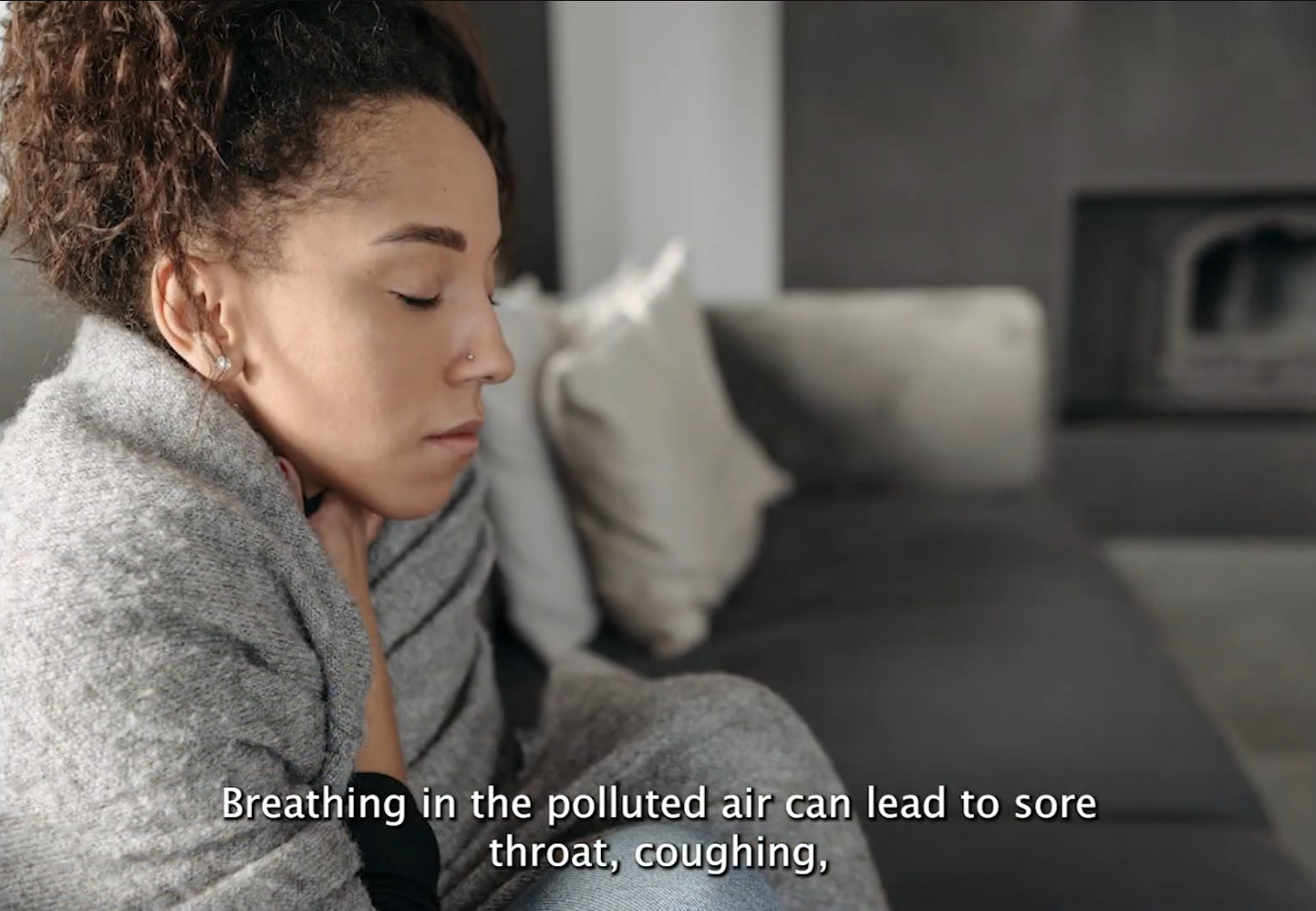
Results Video (Full)
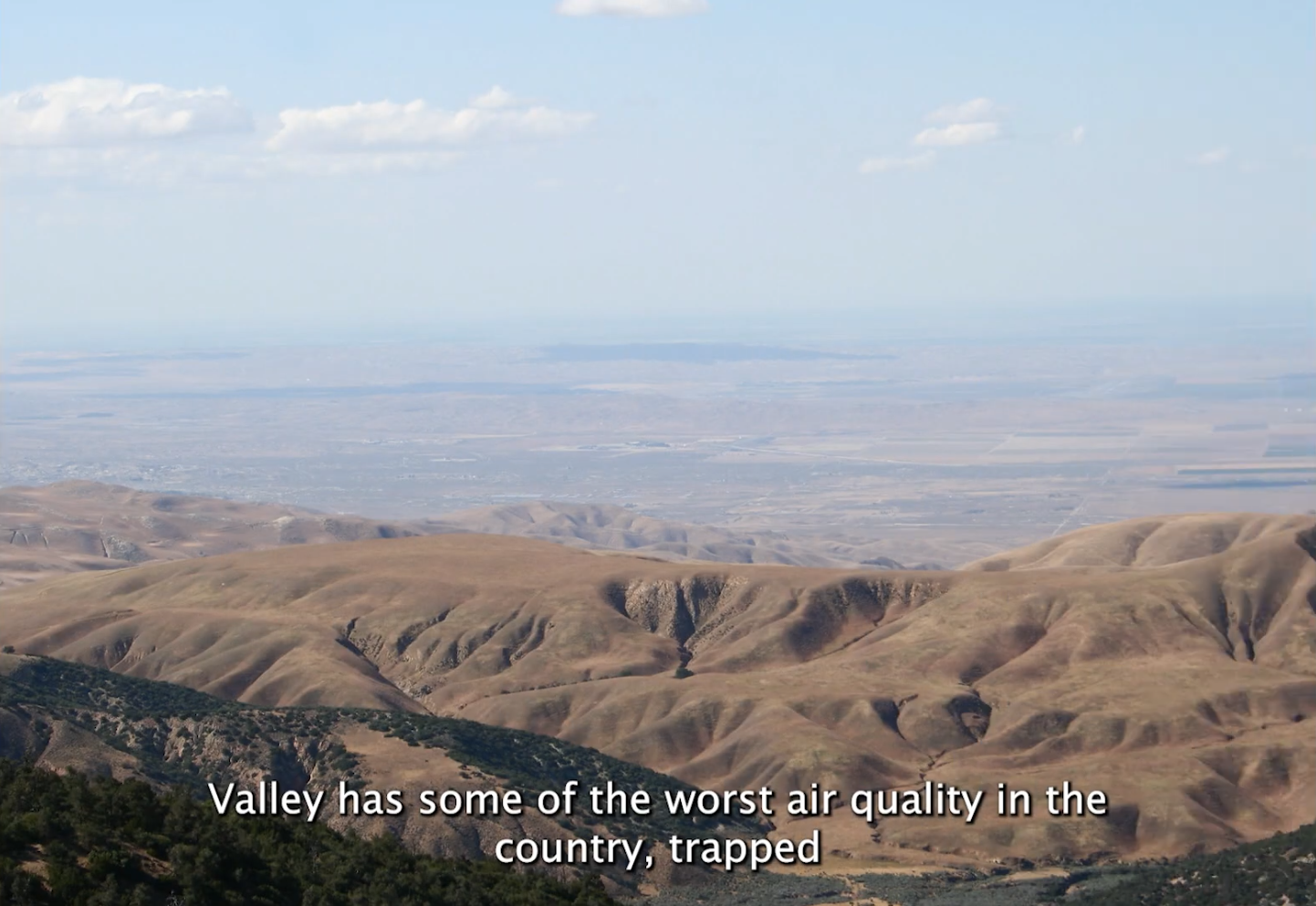
Results Video (summary)
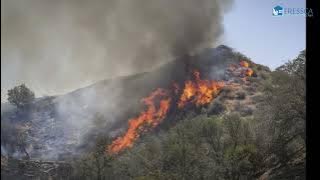
Project Video
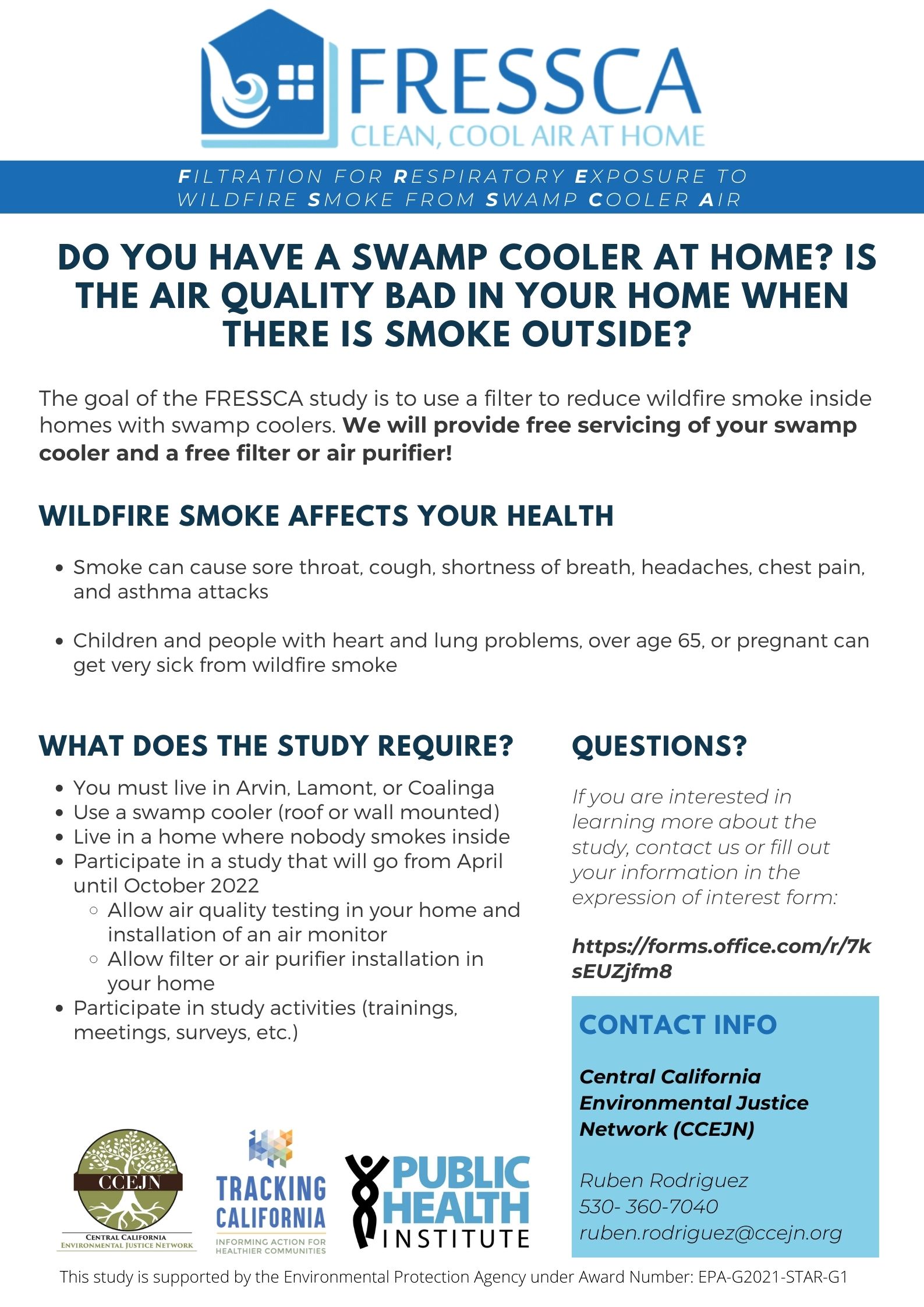
Project Factsheet (English)
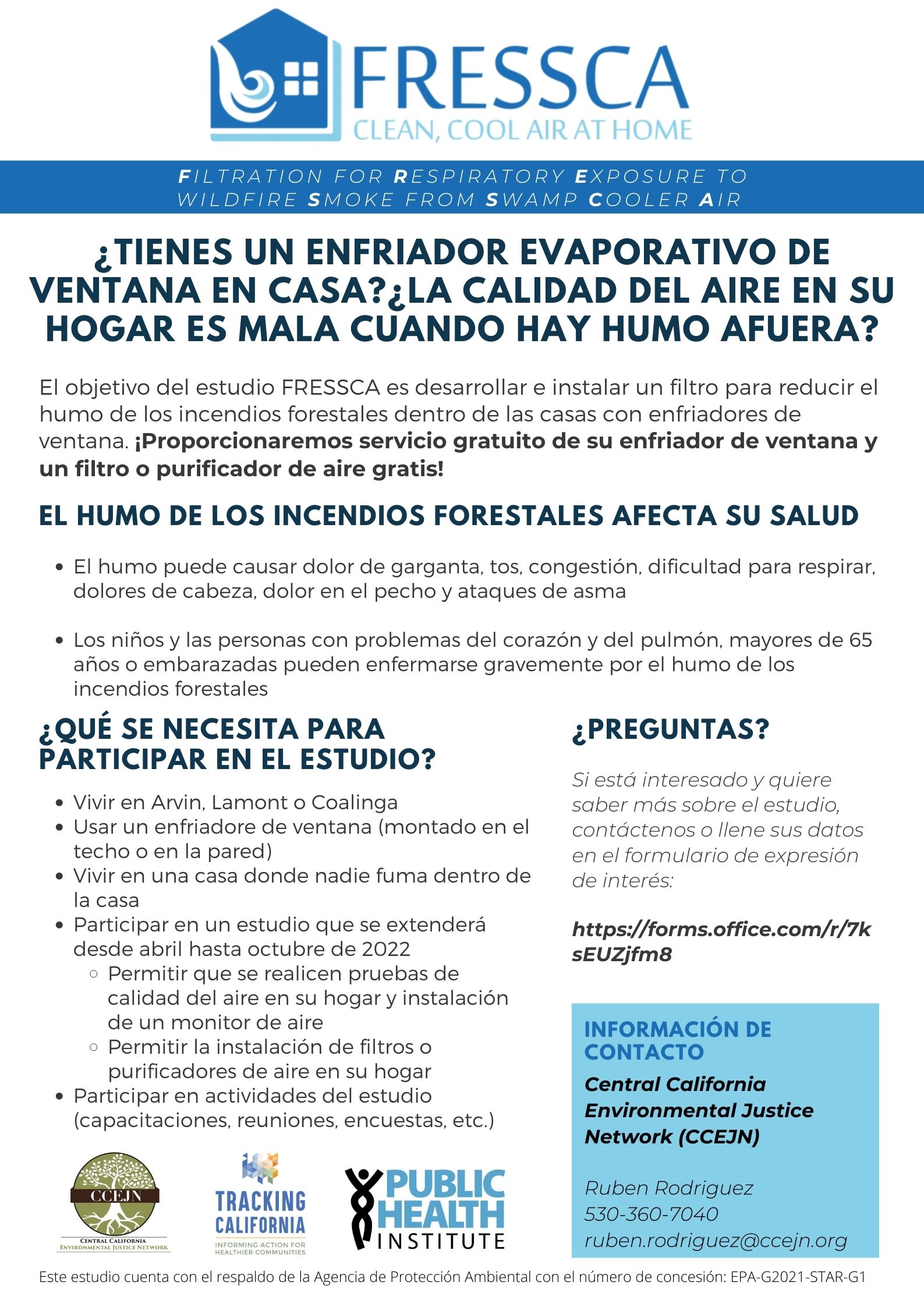
Project Factsheet (Spanish)
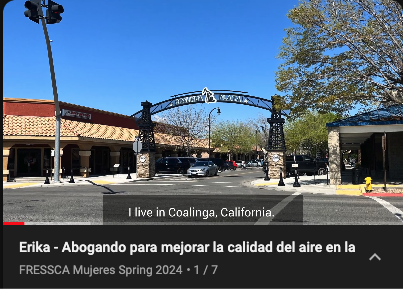
FRESSCA Mujeres Stories of Resilience Videos
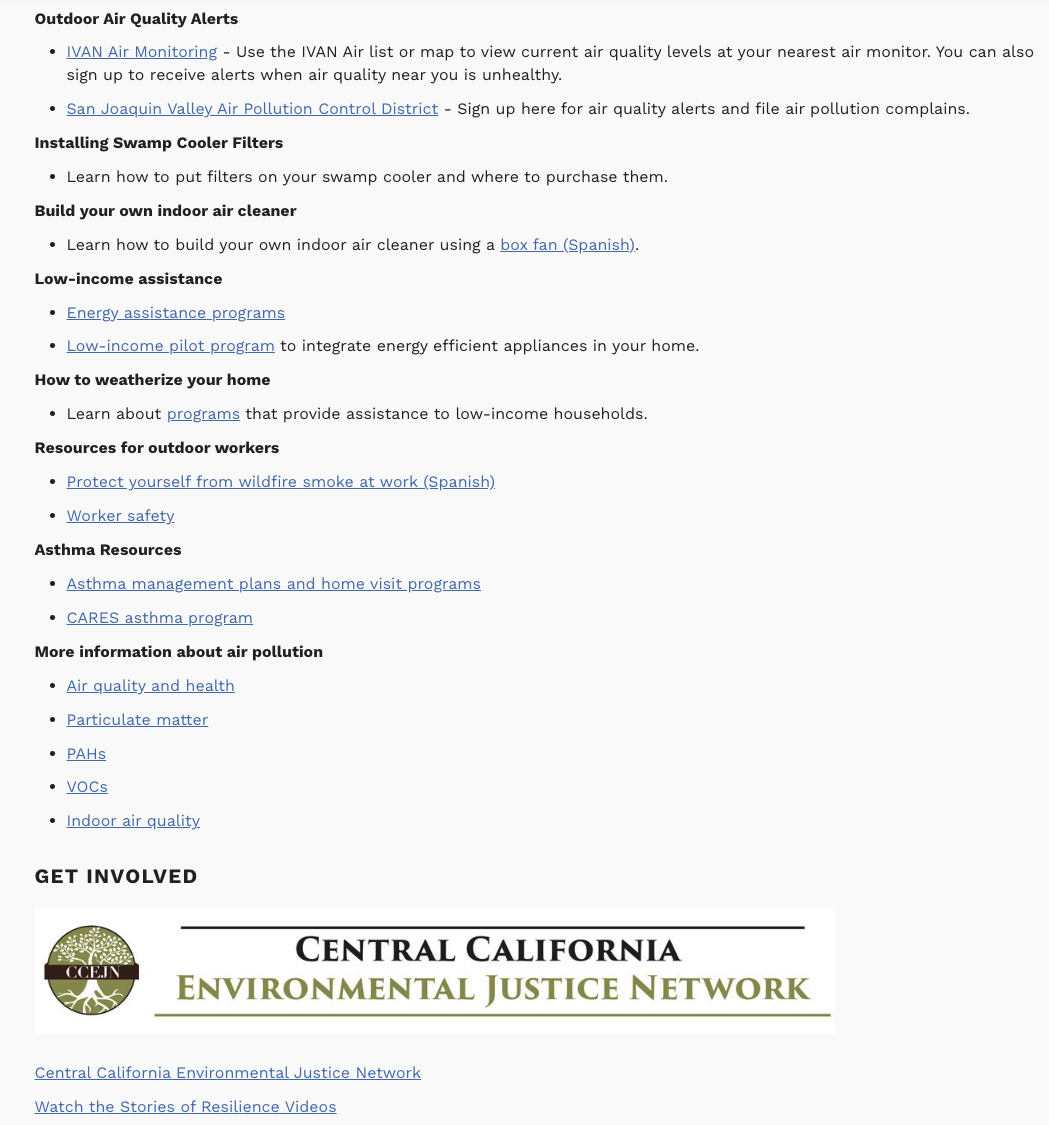
Project Resources (English)

Project Resources (Spanish)

Links to purchase filter materials
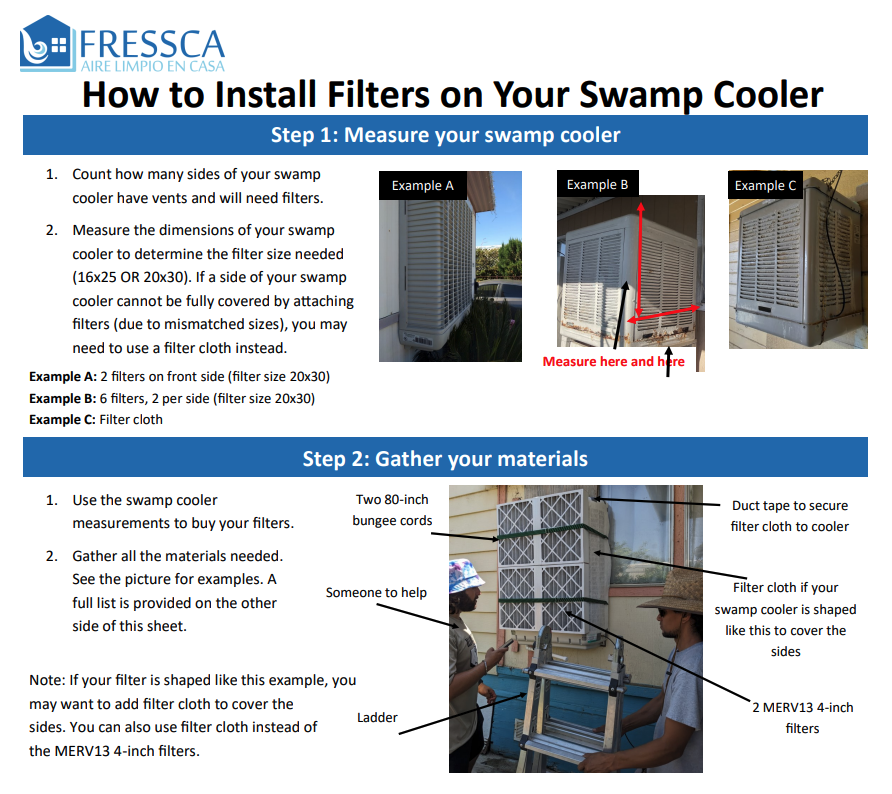
How to Install Filters (English)
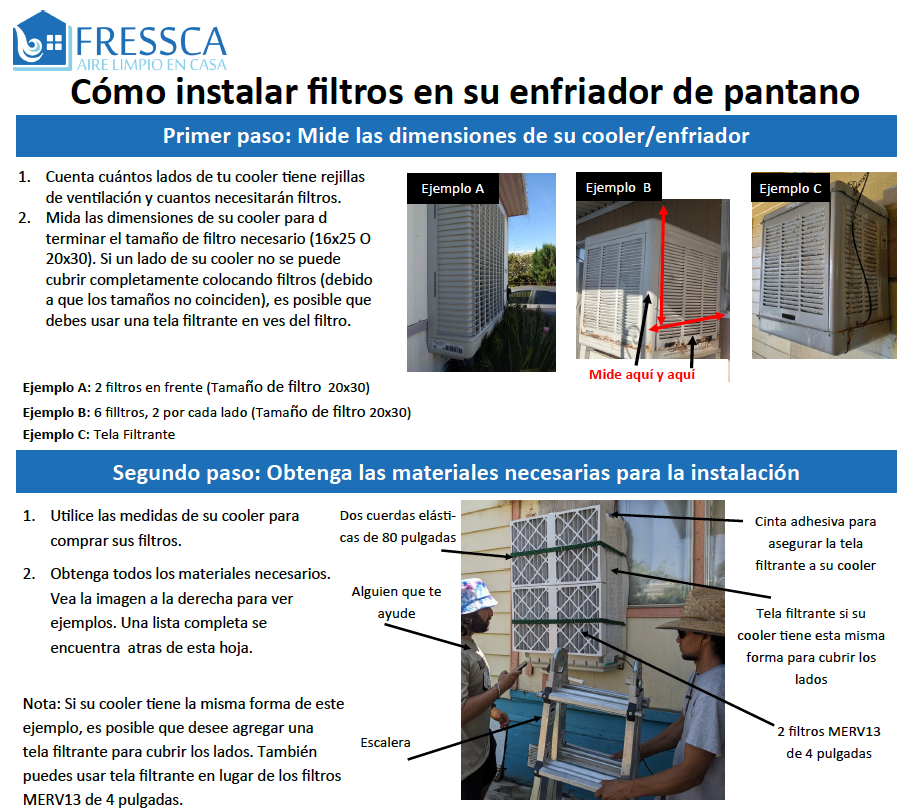
How to Install Filters (Spanish)
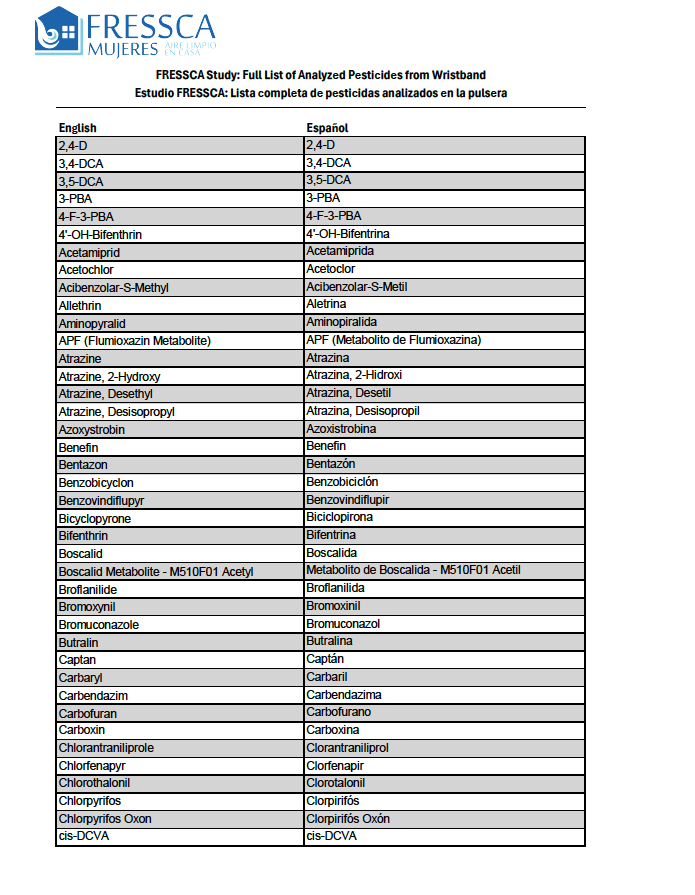
List of Analyzed Pesticides from Wristbands
Project Publications
- Evaporative coolers and wildfire smoke exposure: a climate justice issue in hot, dry regions [2025] Gina M. Solomon, Nayamin Martinez, Julie Von Behren, Isabella Kaser, David Chang, Aditya Singh, Stephanie Jarmul, Shelly L. Miller, Peggy Reynolds, Mohammad Heidarinejad, Brent Stephens, Brett C. Singer, Jeff Wagner, John R. Balmes
- Practical Guidance for Using PurpleAir Particle Monitors for Indoor and Outdoor Measurements in Community Field Studies [2025] Minyu Wang, David Chang, Aditya Singh, Jeff Wagner, Zhong-Min Wang, Brett C. Singer, Shelly L. Miller, Nayamin Martinez, Ruben Rodriguez, Isabella Kaser, McKenna Thompson, Mohammad Heidarinejad, Gina Solomon
- Development and laboratory evaluation of a do-it-yourself (DIY) filtration solution for residential evaporative coolers to reduce indoor wildfire smoke exposure [2025] Aditya Singh, Brent Stephens, Mohammad Heidarinejad, Brett Stinson, Elliott Gall, Jeff Wagner, Brett Singer, Shelly Miller, Nayamin Martinez, Ruben Rodriguez, Gina Solomon
- Airborne metals and particulate matter measured inside and outside farmworker homes with evaporative coolers and air filtration interventions [2025] Kelly Chen, Nikki Catangay, Zhong-Min Wang, Mingyu Wang, Aditya Singh, Mohammad Heidarinejad, Brent Stephens, Isabella Kaser, Ruben Rodriguez, Nayamin Martinez, Gina Solomon, Jeff Wagner



